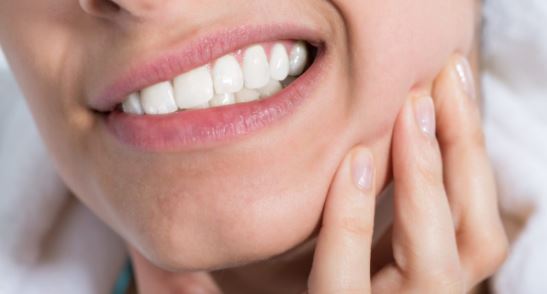Lifestyle
7 home remedies to get rid of teeth grinding

Bruxism or teeth grinding is common in children and often happens during sleep or stress.
It usually goes away by adulthood, when adult teeth fully erupt. But that doesn’t mean that adults don’t suffer too.
According to one sleep study, 8% of middle-aged adults are believed to grind their teeth during their sleep. Mild teeth grinding is not harmful and doesn’t require treatment.
But if it becomes frequent and severe enough to cause headaches, jaw disorders or teeth damage, it is important to seek dental care.
If you or your kids are experiencing symptoms of grinding that aren’t severe, you can try this home remedies to reduce it and prevent complications like jaw pain.
1. Try splint therapy
Splint therapy is the first line of defence against teeth grinding. It involves wearing a customized dental night guard, bite guard, or occlusal splint. The guard provides a physical barrier to protect teeth and help alleviate symptoms like jaw pain and headache. You can either purchase a generic one from a drugstore or, preferably, get one custom made by your dentist. They will take an impression of your upper and lower teeth to create a mouthguard that fits your jaw perfectly. Store-bought models are not as durable or fitted.
2. Do muscle stretching exercises
Certain muscle stretching exercises help reduce the discomfort related to tooth grinding and prevent its recurrence. The exercises include:
● Mindful Teeth Placement: Maintain a gap between your upper and lower teeth to avoid grinding or clenching. Try doing this exercise all the time, except when chewing.
● Jaw Exercise: Open your mouth as wide as you comfortably can and try touching your tongue to your front teeth. This exercise will help relax your jaw muscles.
3. Warm compress
If you’re unconsciously clenching your teeth, a warm compress can relax the muscles and increase blood circulation in the area. Lie down and rest one side of your face on a heating pad. Apply a warm compress for 15 minutes and then repeat on the other side.
4. Meditate and practice yoga
Mental health issues like stress, anxiety and depression are all underlying causes of bruxism. Stress reduction techniques can help improve your overall health. To meditate, sit comfortably and focus your mind for some time in silence. Don’t let your thoughts wander and try to empty your mind. You can also practice yoga, with pelvic tilts, low lunges and mountain pose some of the best poses to manage stress.
5. Eat magnesium-rich food
Magnesium aids in relaxation and regulates mood. Include magnesium-rich foods like dry roasted almonds, boiled spinach, bananas, fish, black-eyed peas, peanut butter and flaxseed in your diet. These will help relax muscle tissues and blood vessels and prevent grinding caused by tight or spasming jaw muscles. You can also take magnesium supplements, but it’s advisable to consult a doctor or nutritionist first.
6. Drink turmeric milk
Turmeric has anti-inflammatory properties that aid in relieving your aching jaw muscles. And the amino acid tryptophan in milk helps your nervous system relax and promotes sound sleep. If you don’t like the taste of turmeric milk, add honey for sweetness and drink a glass daily before bedtime for the desired results.
7. Drink herbal tea
Instead of caffeinated beverages like coffee, you’re better off consuming non-caffeinated alternatives. Opting for herbal or chamomile tea is a great way to naturally reduce your stress and alleviate the symptoms of grinding in sleep as it’s aggravated by nervous tension. Herbal tea relaxes your body and mind and keeps you calm. Try a cup of warm green tea before bed to reduce the likelihood of grinding or clenching your teeth while sleeping.






